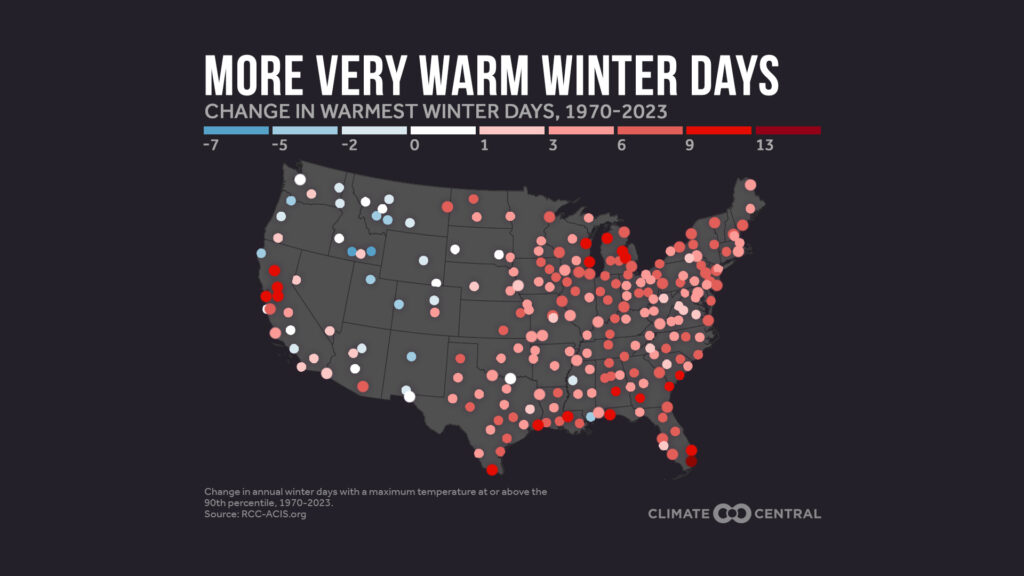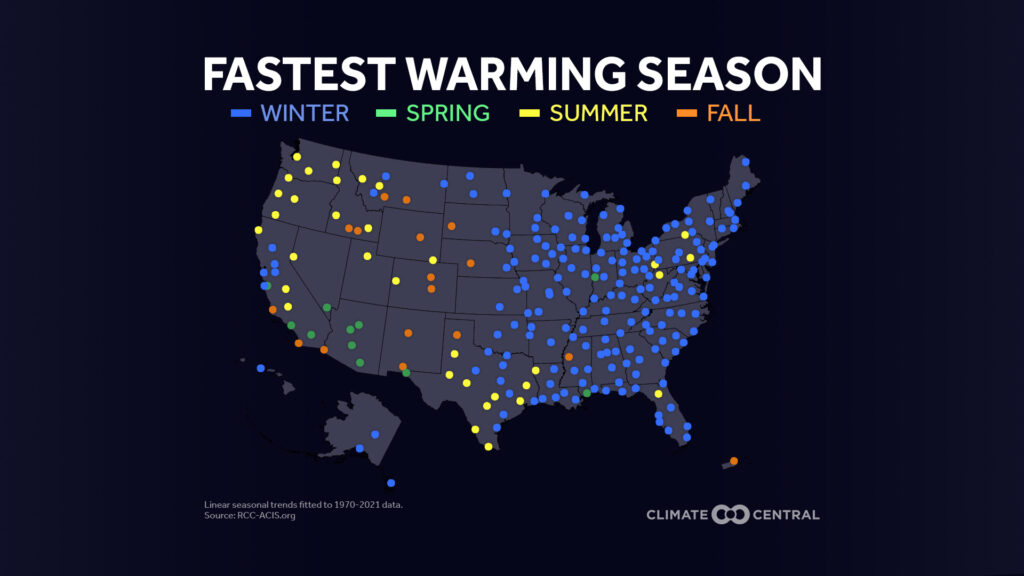By Bella Kubach, The Invading Sea
The average number of warm winter days has rapidly increased in the United States since 1970, according to a recent study by Climate Central.
Out of the 240 locations analyzed, 206 saw a surge in unusually warm winter days. Among the 206 locations, cities in the Upper Midwest, Southeast and Northeast were the most affected.
Climate Central’s analysis defined an unusually warm winter day as any day during December, January or February with a maximum temperature at or above the 90th percentile at that location.

Miami and West Palm Beach were among the cities that experienced the largest increase in unusually warm winter days from 1970 to 2023, with Miami topping the list.
Over that period, Miami experienced 22 more unusually warm days when temperatures reached 83 degrees F. West Palm Beach experienced 10 more days reaching that threshold since 1970.
The evidence suggests that winter is the fastest-warming season for 74% of the U.S. locations Climate Central analyzed.
Warmer winters may impact agriculture, seasonal allergies, water supply and winter sports, among other things, the study found.
But for Floridians specifically, the decrease in the number of very cold days may be more threatening than the increase of warm winter days, according to David Zierden, Florida state climatologist.
“With the lack of freezing and very cold temperatures, it enables the spread of invasive species further north,” Zierden said.

Additionally, Zierden noted that ecosystems are changing, and natural mangrove shorelines are migrating further north due to the lack of very cold winter days.
The mosquito population also thrives with warmer weather.
According to Zierden and the Climate Shift Index map tool by Climate Central, climate change is driving warmer winters and the lack of especially cold days. 2023 was the planet’s warmest year since measurements started being taken in 1850, with 10 of the warmest years since then all occurring in the past decade.
“We always have to talk about the background of global climate change and the increase in greenhouse gas emissions and greenhouse gas concentrations in our atmosphere,” Zierden said.
This piece was written by Bella Kubach, a Florida Atlantic University senior majoring in multimedia journalism who is reporting for The Invading Sea during the spring 2024 semester.
Sign up for The Invading Sea newsletter by visiting here. If you are interested in submitting an opinion piece to The Invading Sea, email Editor Nathan Crabbe at nc*****@*au.edu.



